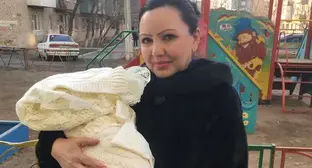
20 May 2024, 22:59
Defence requests court to release Ingush native Daud Mamilov, accused of connections with IS*
An advocate of Daud Mamilov, a native of Ingushetia, filed a complaint against the court’s verdict by which he was sentenced to eight years of imprisonment for involvement in the terrorist organization “Islamic State” (IS)*. The defence suggests that the verdict is based on assumptions and is pronounced with significant violations of the Daud Mamilov’s rights.
The “Caucasian Knot” has reported that in September 2020, Daud Mamilov complained that he was forced to confess to the crime.
Daud Mamilov was detained on April 29, 2019. According to the investigators’ version, five persons, including Daud Mamilov, created a cell of the “Islamic State”*, a terrorist organization banned in Russia. In June 2020, more than 70 residents of Ingushetia, including members of the People’s Assembly of Ingushetia, vouched for Daud Mamilov. Detainee’ father Zakriy Mamilov, a member of the People’s Assembly of Ingushetia, who opposed the agreement on the border between Ingushetia and Chechnya, associated the criminal prosecution of his son with his own political activities.
In her complaint, Lyudmila Tolstonogova, an advocate of Daud Mamilov, emphasizes that the court’s conclusions about the defendant’s guilt should be confirmed by the totality of evidence examined during the trial.
However, in its verdict, the court indicated that Daud Mamilov’s guilt was confirmed by the testimony given by suspect Satavaldinov, from which it followed that Daud Mamilov allegedly expressed a great desire to take part in hostilities. Satavaldinov did not give such testimony either during the preliminary investigation or in court.
“Daud Mamilov’s viewing of videos with radical content, as well as alleged radical views, information about which is set out in the testimonies of other defendants, do not in themselves constitute a crime,” the advocate emphasizes in the complaint.
The persons who vouched for Daud Mamilov note that the man is restrained, tolerant, responsive, and has no extremist inclinations or radical views in religion. “Such behaviour excludes his involvement in a prohibited organization, since it contradicts its goals,” the advocate states.
*On December 29, 2014, the Supreme Court (SC) of the Russian Federation recognized the organization “Islamic State of Iraq and the Levant” (ISIL or IS) as a terrorist international organization and banned its activities in Russia.
This article was originally published on the Russian page of 24/7 Internet agency ‘Caucasian Knot’ on May 20, 2024 at 10:49 am MSK. To access the full text of the article, click here.
Author: Amina Zakaeva Source: СK correspondent




